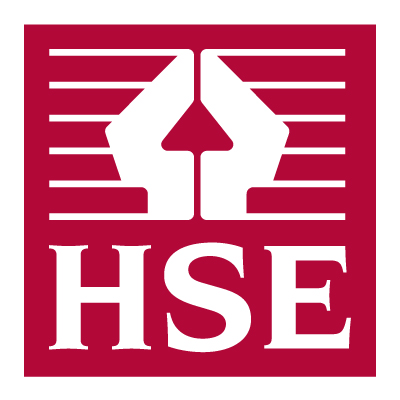Latest News
ESS Guide to RIDDOR
Posted on Friday, 9th April 2021

While every employer should do all they can to make their workplace as safe as possible, accidents do happen. When they occur, it may be necessary to report them to the HSE in accordance with RIDDOR legislation. In this week’s blog we take a look at what RIDDOR is, and what types of accidents and injuries need to be reported.
What does RIDDOR stand for?
RIDDOR stands for the Reporting of Injuries, Diseases and Dangerous Occurrences Regulations. You might also see these regulations referred to as RIDDOR 2013 due to the extensive updates the legislation received in 2013.
What is RIDDOR?
RIDDOR is the health and safety legislation that sets out in law the responsibilities for reporting workplace injuries. These regulations require employers, or those in charge of work premises, to report certain workplace accidents, occupational diseases, and near-misses to the Health and Safety Executive (HSE).
Reporting varying incidents under RIDDOR is a legal requirement and there are serious consequences for failing to do so. Responsible individuals who fail to report incidents can be fined up to £20,000 in a county court. For major incidents, individuals can be issued with an unlimited fine by the crown court and even face jail time.
Why is RIDDOR important?
Fundamentally, the purpose of RIDDOR is to keep people safe. By enshrining in law the need to report accidents at work, it ensures that employers are accountable for the safety of their workers. This is essential for ensuring further accidents don’t occur and that worker safety is improved going forward.
RIDDOR reporting is also crucial for the collection of data so the HSE can monitor risks to workers health. If they see sharp increases in the reporting of certain types of injuries at work, they know new measures need to be put in place to counteract that specific occupational hazard.
What must be reported to RIDDOR?
There are a range of RIDDOR reportable accidents that must be reported if they occur in the workplace. These can be grouped into several different categories:
Deaths and injuries caused by workplace accidents:
All deaths (with the exception of suicide) stemming from work-related accidents must be reported. In addition, there is an extensive list of non-fatal injuries that must also be reported under RIDDOR. These include:
- Fractures (other than to fingers, thumbs and toes).
- Amputations.
- Any injury likely to cause damage to the eyes.
- Crush injuries to the head or torso causing damage to the brain or internal organs.
- Serious burns (including scalding) which either cover more than 10% of the body, or cause damage to vital organs.
- Scalping (skin being forcefully removed from the head) that requires hospital treatment.
- Loss of consciousness caused by head injury or asphyxia.
- Any other injury arising from working in an enclosed space.
- Injuries that leave the individual unable to work for over 7 consecutive days.
- Accidents and injuries to non-workers if they are taken directly from the scene to the hospital.
- Any gas incidents that result in death, loss of consciousness, or the individual being taken to hospital.
Full guidance on the specified injuries that need be reported can be found on HSE’s dedicated page.
Occupational diseases:
These are specific diseases which are likely to have been caused, or made worse, by the nature of the individual’s work. They include:
 Carpal tunnel syndrome
Carpal tunnel syndrome- Severe cramp of the hand or forearm.
- Occupational dermatitis.
- Hand-arm vibration syndrome (HAVS).
- Occupational asthma.
- Tendonitis or tenosynovitis of the hand or forearm.
- Any occupational cancer.
- Any disease attributed to an occupational exposure to a biological agent.
Dangerous occurrences:
‘Dangerous occurrences’ is the technical name given to near-misses. This is where a dangerous incident has occurred but it has not resulted in any injuries being sustained. Not all near-misses need to be reported, but RIDDOR specifies several different dangerous occurrences that need to be reported if they occur. In total, RIDDOR list 27 different categories of dangerous occurrences. These include, but are not limited to, accidents involving:
- Lifting equipment.
- Vehicle collisions.
- Collapse of structures (such as scaffolding or walls).
- Fires and explosions.
- Incidents involving overhead electric lines or underground cables.
Visit the HSE’s guidance on dangerous occurrences to get a full guide of the near misses that must be reported.
Covid 19:
RIDDOR has updated guidance to clarify when incidents involving the spread of Covid-19 must be reported. You should make a RIDDOR report if:
- An incident at work has, or could have, led to the release of the Covid-19 virus.
- A worker has tested positive for coronavirus due to exposure at work.
- A worker dies due to occupational exposure to the virus.
What percentage of RIDDOR reportable accidents are caused by manual handling?
Manual handling (the movement of any object by hand) is responsible for a huge proportion of workplace injuries. Union claims that one in three workplace accidents are related to manual handling, with over 300,000 people in the UK suffering from manual handling-induced back pain every year. HSE statistics show that in 2019/20, 19% of RIDDOR reports relating to non-fatal injuries involved handling, lifting, or carrying objects.
These shocking statistics show how important good manual handling practice is to ensuring a healthy workforce. At ESS, we provide expert Manual Handling training, delivered by our team of experienced trainers. To find out more about the subject and the training we can provide, check out our blog “ESS Guide to Manual Handling.”

What are employees’ responsibilities under RIDDOR?
Employees don’t have specific legal obligations to report incidents to RIDDOR, however they should report any accidents involving themselves or others to their designated health and safety representative on site. All organisations should have clear procedures in place which workers must follow when reporting incidents at work.
How do you report a RIDDOR incident?
All RIDDOR reports can made by finding and completing the relevant online form for the situation:
You can also make a RIDDOR report by calling their Incident Contact Centre on 0345 300 9923. Please be aware that this phoneline is only intended for reporting of fatal or specified incidents. Where possible, it is encouraged to use the dedicated online forms mentioned previously.
Training with ESS
At ESS, we provide a number of training courses which provide general health and safety knowledge applicable for a range of roles and working environments. These include:
If you want to see any more of the courses or NVQs we provide, you can use our online course index. If you want to speak us directly about the training we can provide, you can contact our team on 0115 8970 529. You can also drop us an email at info@essentialsiteskills.com.


